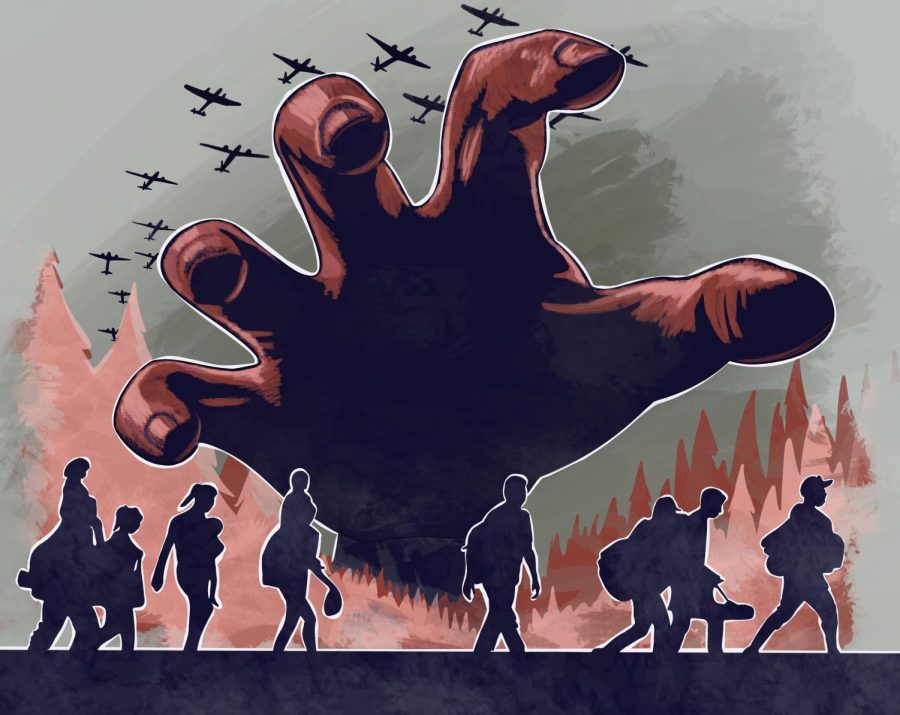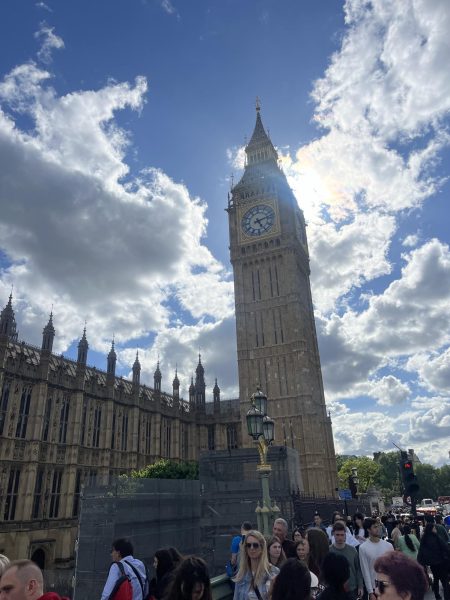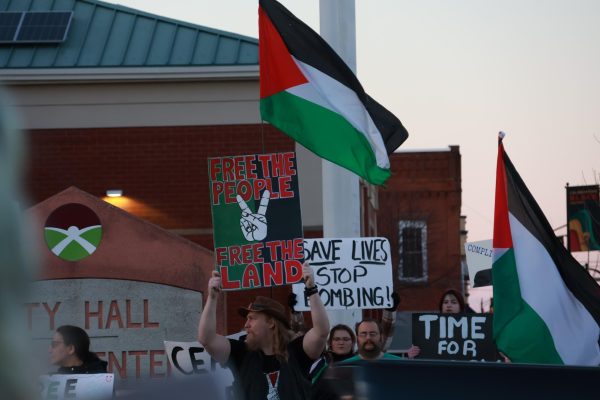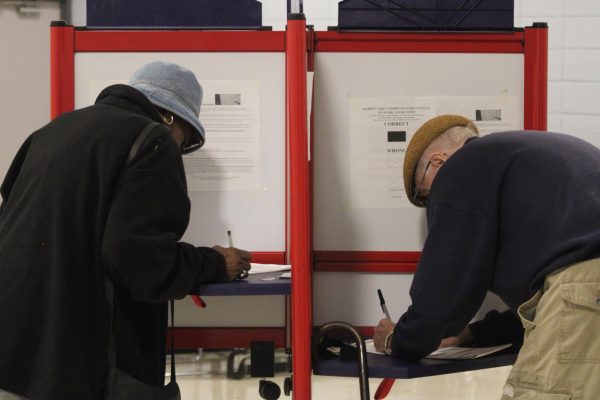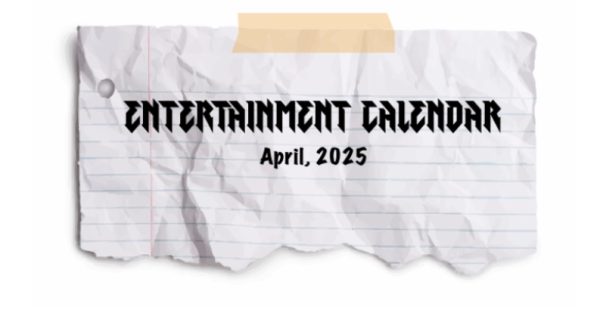Russia is the bad guy, and I’m tired of pretending it isn’t
Russia is the bad guy, and I’m tired of pretending it isn’t
Since December of 2021, information has been released by sources in both the American and Ukrainian governments to the international press regarding Russian intentions to exert its dominance over Ukraine.
Since the release of the first reports, the world has watched with bated breath as Russia turned down the idea of peaceful negotiation in favor of outrageous demands he knew would not be granted by the European Union (EU) and its allies within the US-led North Atlantic Treaty Organization (NATO). While these negotiations were taking place, thousands of Russian troops began massing on the Ukrainian border and began building infrastructure like supply depots and field hospitals.
Putin has additionally expressed in his own writings on the Kremlin’s official website detailing in exhaustive fashion the historical and cultural links between modern Russia and Ukraine and blaming the lack of “spiritual unity” on a change of identity forced on them by NATO-allied forces following the fall of the Soviet Union (USSR).
Advertisement
Many here in the US are unfamiliar with the precipitating events that led to the conflict. While the history of the two nations stretches back across centuries, the seeds of the current conflict were first planted with the fall of the USSR in 1991, establishing the modern nations of Russia and Ukraine.
An NPR report by staff writer Becky Sullivan on the history of the two nations summarizes the precipitating events and provides context for the current crisis.
Ukraine gave its nuclear stockpile, leftover from the Soviet era, to Russia in exchange for a recognition of territorial sovereignty in 1996.
Since the dissolution of the USSR, Russia and NATO have fought for influence within the region. As the population protested, rebelled and later overthrew the post-Soviet regime in favor of a pro-NATO government, Russians exerted pressure on Ukrainian leaders and annexed the Crimean peninsula in March 2014 after labeling the revolutionary government illegitimate.
When the Russian annexation concluded, the eastern Ukrainian regions of Donbas and Luhansk declared their independence after Russian-supported rebel forces captured their governing capitals, citing a desire to maintain closer ties with Russia.
The fighting led to the signing of the Minsk Agreement, which was intended to act as a ceasefire, but fell apart in less than a year, reigniting the fighting in eastern Ukraine. A second peace deal, known as the Minsk II Agreement was signed in 2015, but it too fell through and fighting has continued in the region since.
Over the next five years, a new president was elected, current president Volodymyr Zelynsky, who asked then-president Donald Trump for aid in moving away from Russia’s economic sphere of influence. This resulted in Trump famously asking Zelynskyy for “a favor” in investigating the son of then-presidential candidate Joe Biden’s connections with Burisma, an energy company based in Ukraine, while threatening to withhold regular military aid as a bargaining chip. Zelynsky initially agreed but ultimately refused to follow through, citing popular dislike in Ukraine for interfering with US affairs.
Advertisement*
Since Biden’s 2020 election victory, little additional news came out of the country until Russian troop deployments began building on the border in April of 2021. When initially confronted by NATO allies, Putin promised to pull back some of the forces, but left tens of thousands. This spurred Zelynsky to meet with the new president to establish a timeline for NATO membership, which ultimately failed to occur.
The process of initiating Ukraine into NATO has been put off for years, with leading nations fearing a direct conflict with Russian forces. Unfortunately, this has allowed Russia to maintain a dominant presence in Ukraine, ultimately allowing them to claim their current efforts to invade the country are peacekeeping measures seeking to pacify conflict at their border.
Prominent NATO members, like French president Emmanuel Macron and UK Prime Minister Boris Johnson have expressed support for the sovereignty and independence of Ukraine. Biden has expressed similar sentiments, but such sentiments ring hollow when his administration has directly refused to provide military aid to Ukraine, who fears their country will fall prey to Russian expansionism without international help.
The Biden administration has struggled to maintain popular support due to COVID-19 continuing to ravage the country, rising inflation spurring discontent among working-class voters and the public relations disaster of the end of the war in Afghanistan, leading Republicans to aim at taking back the majority in the House of Representatives and Senate in the upcoming 2022 elections.
This newfound opportunity has exposed a division within the Republican party centered around its love/hate relationship with its de facto leader, Trump.
Trump appeared on the Clay Travis and Buck Sexton show, a conservative talk radio show, on Tuesday, Feb. 22. While on the show he made comments calling Putin’s declaration of support for the Donbas and Luhansk regions, the primary justification for his current invasion, “genius” and “savvy.”
Trump has a well documented history of fraternizing with authoritarians and has gone out of his way to carry out explicitly authoritarian actions and policies like using tear gas to disperse protestors for a photo opportunity and repeatedly directing violence toward members of the press at his political rallies. But despite, or perhaps because of, his trend toward authoritarianism, he still finds support among a broad swathe of the ostensibly freedom-loving Republican party electorate.
There is a faction within the party, led by Senate Minority leader Mitch McConnell, to distance the party from Trump during the upcoming 2022 elections and since the onset of the Ukrainian crisis this faction has expressed their support for Ukrainian sovereignty while simultaneously decrying Biden’s as too little and too late.
However, at the Conservative Political Action Conference (CPAC) in Orlando, Fla. this past weekend, the largest gathering of conservative politicians, activists and donors in the US, a survey of 2574 attendees gave Trump a 99% approval rating for his previous term and 85% supported a future bid for the presidency in 2024.
We saw how Trump went from political outsider to dominating the Republican party almost overnight in 2016, flipping formerly vocal opponents like Senator Ted Cruz and even McConnell himself after receiving the Republican nomination. If the same were to happen in 2024, recent history shows we should be wary of the reliability of Republicans in excising the most radical elements of the party.
The real division exposed by the Russian incursion seems to be an ongoing power struggle within the Republican party between Trump’s strength-posturing populism and the more ideologically motivated faction led by McConnell in the Senate. The party agrees on lines of nationalist domestic policy and protectionist economic policy, but differs on foreign policy and the role the party should take in influencing global politics.
Trump’s foreign policy seems to depend on whatever he feels rallies his base most, like assassinating Iranian general Qasem Soleimani on Iraqi soil, nearly sparking another war with both powers. Trump’s willingness to decide and act unilaterally, even against the advice of his advisors, in matters of foreign policy and utilize the military to do so place him alongside other authoritarians he’s publicly praised like Kim Jong-Un and Putin.
The division of the party not explicitly aligned with Trump prefers an isolationist approach, maintaining positions of authority in various multinational organizations like NATO and the United Nations (UN) but not acting on the global stage unless a specific national interest is at stake.
This is why the party can openly decry the violence being perpetuated by Russia while remaining silent when it comes to helping the refugees seeking to flee the conflict, including thousands of international students from various African countries like Nigeria, Morocco and Ethiopia who remain stranded without a path of escape.
Putin’s newest invasion of Ukraine is the work of a man driven to restore Russia to the “glory” it once had. He hearkens back to the same blood and soil justifications that so rallied nations in the early half of the 20th century and served as the pretext for the German invasion of Czechoslovakia’s Sudetenland, claiming that shared cultural heritage outweighs a nation’s desire for self-governance.
A significant portion of the Republican party, with Trump as their leader, have a significant chance of becoming the dominant political influence in the country in 2024. This contingent, which openly praises authoritarians and stormed the US Capitol building on January 6, 2021 in an attempt to overturn the results of the 2020 election, has shown a disdain for the democratic process and a penchant for anti-intellectualism.
We must hold our nation up to a mirror and examine its weaknesses. Its vulnerability to misinformation, its deep political divisions, and its weakness to strongman populism historically point toward balkanization and bloodshed. America claims to be better than Russia, so we must work together, as one nation, to make that happen.
Staff reporter William Box can be reached at wbox@dailyegyptian.com or on Twitter at @William17455137. To stay up to date with all your southern Illinois news, follow the Daily Egyptian on Facebook and Twitter.
Advertisement



